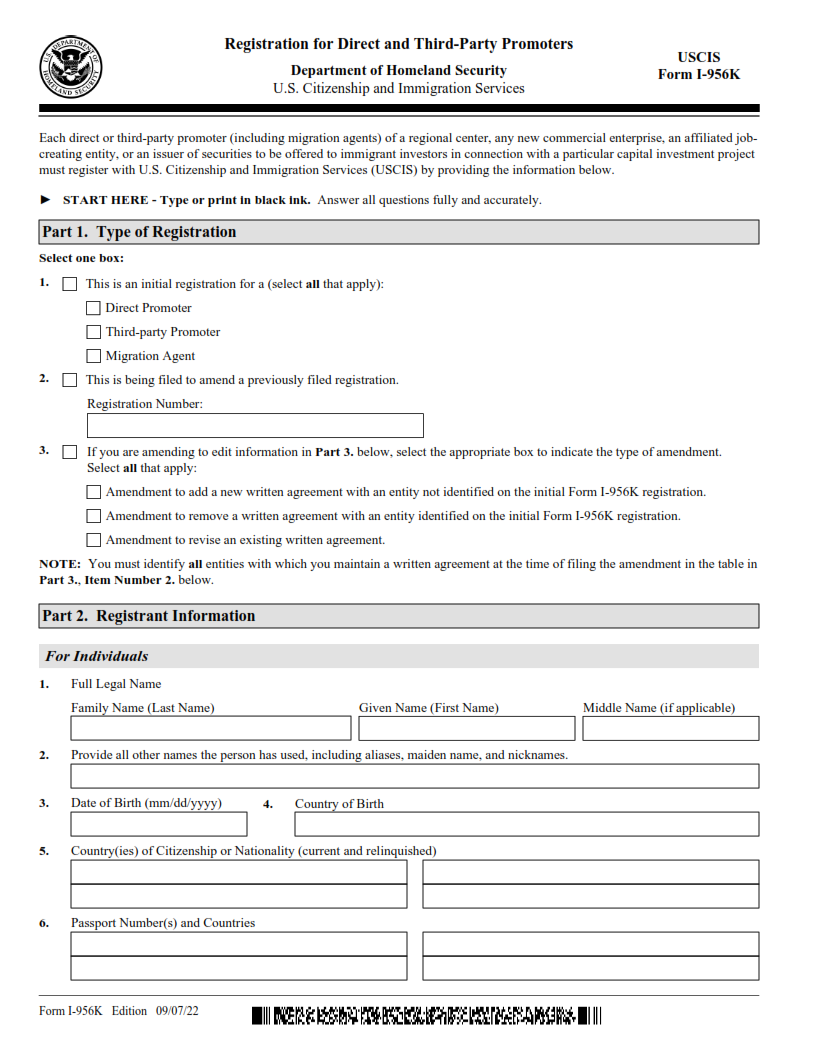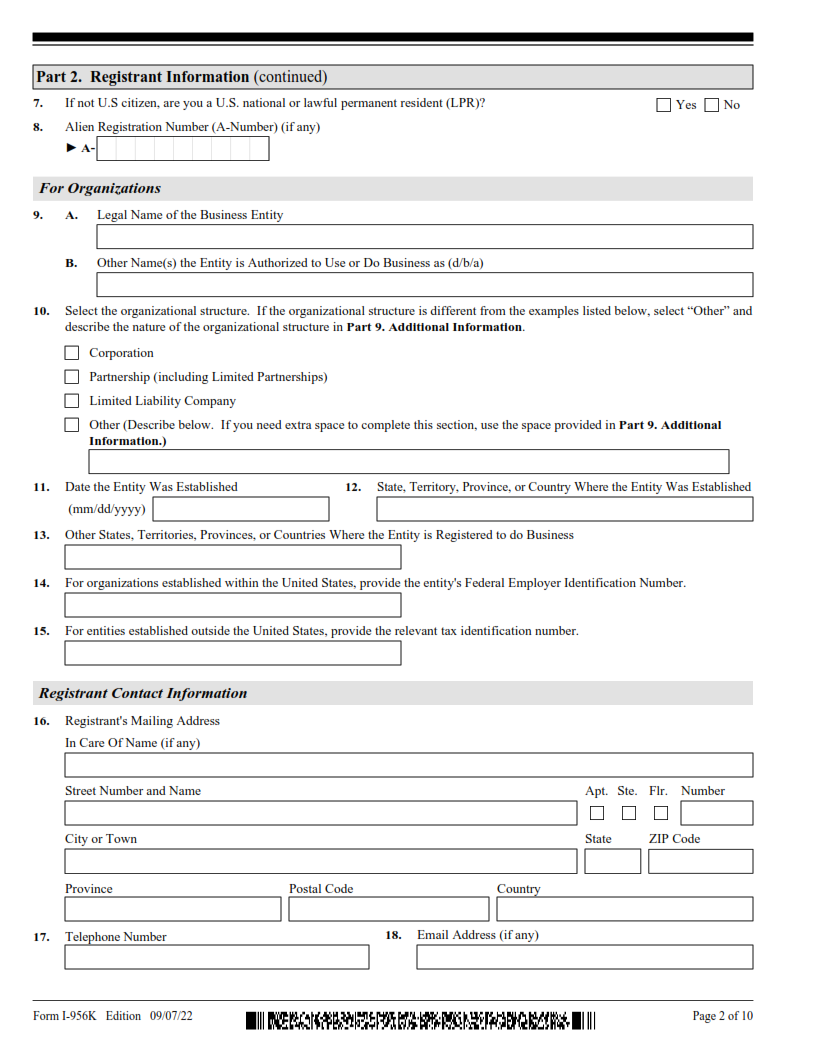FINDERDOC.COM – I-956K Form – Registration for Direct and Third-Party Promoters – The I-956K Form is an important document for those who wish to register as a direct or third-party promoter. This form has been designed by the Federal Trade Commission (FTC) to ensure all regulations, laws and ethical standards are met when promoting products and services. It serves as a safeguard for both consumers and promoters alike, ensuring that promotions are conducted in compliance with FTC rules. The purpose of this article is to provide an overview of the requirements associated with registration using the I-956K Form.
Download I-956K Form – Registration for Direct and Third-Party Promoters
| Form Number | I-956K Form |
| Form Title | Registration for Direct and Third-Party Promoters |
| File Size | 491 KB |
| Form By | USCIS Forms |
What is an I-956K Form?
The I-956K form, also known as the Registration of Direct and Third-Party Promoters, is a document used by promoters to register their business with the United States Department of Homeland Security’s Immigration and Customs Enforcement (ICE). The purpose of this form is to ensure that promoters comply with federal laws related to the promotion of foreign nationals in the United States.
This form requires promoters to provide information such as their name, address, contact information, type of services provided, and country of origin. Additionally, they must submit evidence that they have sufficient financial resources to cover promotional expenses for those individuals they are promoting. This includes proof that any fees paid by third parties will be refunded if necessary.
What is the Purpose of the I-956K Form?
The I-956K form is a document issued by the US Citizenship and Immigration Services that allows organizations to register non-citizen workers as direct or third-party promoters. The purpose of this form is to protect all parties involved in the promotional activity, including employers, employees, and consumers. This ensures that individuals hired as promoters are legally authorized to work in the United States and have not been subject to any immigration fraud.
The I-956K form also serves as an agreement between employers and employees that establishes limits on activities performed by employees while working for employers. This includes restrictions on activities such as engaging with customers, accessing confidential information, or using company resources without permission. By having these restrictions in place, employers can ensure that their organization’s interests are protected from potential risks associated with unauthorized employee activities.
Where Can I Find an I-956K Form?
The I-956K form is an important document for direct and third-party promoters who are looking to register with the Federal Aviation Administration (FAA). This form must be completed in order to obtain a valid permit. It is required by all individuals or organizations that offer promotional services such as flight instruction, aircraft sales, exhibitions, and demonstrations.
The form can be found on the FAA’s website or by contacting your local FAA office. On the website, you must select “Bureau of Air Commerce” from the drop-down list in order to access the forms page. Once there, scroll down until you find “Form Number 956K – Registration for Direct and Third Party Promoters”.
I-956K Form – Registration for Direct and Third-Party Promoters
The I-956K Form is an important part of the registration process for promoters, whether they are direct or third-party. It is essential for promoters to register properly in order to legally and financially protect themselves, as well as those involved with their services.
Primarily, the I-956K Form serves as a contract between the promoter and their clients. This document outlines the terms and conditions of how promotional services should be conducted. The form also includes clauses that provide details about payment arrangements, which must be agreed upon by both parties before any service can begin. Additionally, it gives promoters the ability to set their own rules when it comes to refunds and cancellations.
Ultimately, having a comprehensive registration system such as this one helps ensure that all parties involved in promotions are treated fairly and in accordance with local laws.
I-956K Form Example

